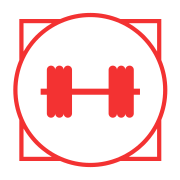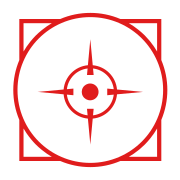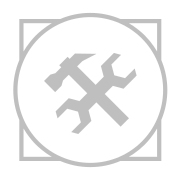Attributes
- For information on attributes prior to Patch 6.0, see Attributes (pre-6.0).
Attributes, often referred to simply as stats, are the basic building blocks for a character's combat ability. The four primary attributes are strength, agility, stamina, and intellect. These attributes appear on the character sheet under the "Attributes" section. Equipment with primary attributes on it has the unique property of swapping between the active attribute based on whatever primary is most useful to the current player's class specialization. For example, a plate helm will have equal amounts of strength and intellect on it, but only holy paladins will use the intellect, while protection and retribution paladins (and the other plate-wearing classes) will use the strength. Primary attributes also affect secondary attributes and the derived combat attributes.
All characters inherently have a base amount of the four primary attributes that increases with level depending largely upon their class. For example, a mage will have more base intellect than a rogue, whom instead has more base agility. Beyond the base level of attributes, players can increase their attributes with equipment (from items' base attributes, as well as improvements from enchantments and gems), talents, temporary effects such as elixirs and auras, and many other means.
A number of secondary attributes also appear on gear. Secondary attributes include critical strike chance, haste, mastery, and several others. Secondary attributes also affect the derived combat attributes, typically more directly than the primary attributes.
Rarely, tertiary attributes may also appear as a bonus property on gear and include such effects as reduced area of effect damage taken, getting healed from doing damage, or movement speed increases. Individual copies of a piece of gear may or may not have a minor attribute on it.
Nearly all combat mechanics rely in some way on one or more attributes, many of which are not directly on gear but are derived from attributes that are. Increasing the appropriate attribute will increase damage done, reduce damage taken, increase healing done, affect a character's health, or other benefits. Understanding how these derived combat attributes work is important for effective combat.
Primary attributes
The four primary attributes are found on items equipped in the eight armor slots: head, shoulders, chest, wrist, hands, waist, legs, and feet; and additionally on weapons and shields. Modern neck and ring items only receive one primary attribute, stamina.
Each of the four armor types is assigned one or two non-stamina primary attributes: plate has strength and intellect, mail and leather have agility and intellect, and cloth only has intellect. Non-cloth armor has equal amounts of intellect and strength/agility. In class specializations that use intellect, players will get their attributes from the intellect, else they will utilize the other primary stat. Players cannot utilize both attributes at the same time.
- Primary attributes
Stamina
- "Stamina" redirects here. For other uses, see Stamina (disambiguation).
Stamina is the source of all health. Nearly all armor has stamina on it, and all classes and specializations wear armor with stamina on it, but tanks generally have the most. Players convert stamina into an increasing amount of health based on character level, scaling up to 20 health per point of stamina at level 60. Some tank specializations have an additional stamina modifier.
Before Warlords of Draenor, players had base health that was independent of stamina, but this is no longer the case. As with the other primary attributes, players still have base stamina at all character levels that provides an innate level of health, even while not wearing any gear.
Strength
- "Strength" redirects here. For other uses, see Strength (disambiguation).
Strength increases attack power and is the most important stat for plate armor-wearing classes in the damage-dealing or tank role. This includes:
 Death knight: blood (tank), frost (DPS), and unholy (DPS)
Death knight: blood (tank), frost (DPS), and unholy (DPS) Paladin: protection (tank) and retribution (DPS)
Paladin: protection (tank) and retribution (DPS) Warrior: arms (DPS), fury (DPS), and protection (tank)
Warrior: arms (DPS), fury (DPS), and protection (tank)
For plate-wearing classes, strength also converts into parry.
Agility
- "Agility" redirects here. For other uses, see Agility (disambiguation).
Agility increases melee and ranged attack power, and is the most important stat for most leather armor and mail armor-wearing classes in the damage-dealing or tank role. This includes:
 Demon hunter: havoc (DPS) and vengeance (tank)
Demon hunter: havoc (DPS) and vengeance (tank) Druid: feral (DPS) and guardian (tank)
Druid: feral (DPS) and guardian (tank) Monk: brewmaster (tank) and windwalker (DPS)
Monk: brewmaster (tank) and windwalker (DPS) Hunter: beast mastery (DPS), marksmanship (DPS), and survival (DPS)
Hunter: beast mastery (DPS), marksmanship (DPS), and survival (DPS) Rogue: assassination (DPS), outlaw (DPS), and subtlety (DPS)
Rogue: assassination (DPS), outlaw (DPS), and subtlety (DPS) Shaman: enhancement (DPS)
Shaman: enhancement (DPS)
For most mail- and leather-wearing classes, agility also converts into dodge.
Intellect
- "Intellect" redirects here. For other uses, see Intellect (disambiguation).
Intellect increases spell power and is the most important stat for mana-using classes wearing any armor type in the damage-dealing (spell caster) or healer role. This includes:
 Druid: balance (DPS) and restoration (healer)
Druid: balance (DPS) and restoration (healer) Evoker: devastation (DPS), preservation (healer), and augmentation (support DPS)
Evoker: devastation (DPS), preservation (healer), and augmentation (support DPS) Mage: arcane (DPS), fire (DPS), and frost (DPS)
Mage: arcane (DPS), fire (DPS), and frost (DPS) Monk: mistweaver (healer)
Monk: mistweaver (healer) Paladin: holy (healer)
Paladin: holy (healer) Priest: discipline (healer), holy (healer), and shadow (DPS)
Priest: discipline (healer), holy (healer), and shadow (DPS) Shaman: elemental (DPS) and restoration (healer)
Shaman: elemental (DPS) and restoration (healer) Warlock: affliction (DPS), demonology (DPS), and destruction (DPS)
Warlock: affliction (DPS), demonology (DPS), and destruction (DPS)
Secondary attributes
There are four secondary attributes: crit, haste, mastery, and versatility. The four all-role attributes may appear on any piece of gear, two secondary attributes per item (with the exception of trinkets).
The intent is that all four secondary attributes are close, but not necessarily equal, in value to each other for all classes and specializations.
- Secondary attributes
Critical Strike
Critical Strike (or "Crit") grants damaging attacks and healing spells a chance to deal 200% of the effect in PvE. That is, if an attack on a creature normally lands for around 1,000 damage, a crit will land for 2,000 damage. While in PvP, critical hits and heals will land for 150% of the effect. There are exceptions, as various abilities can crit for more or less than the baseline.
Players have a 5% base crit chance at all character levels. Additionally, agility users have the passive Critical Strikes, which increases their crit chance by an additional 5%.
Haste
Haste affects the rate at which melee and ranged auto-attacks are dealt, the cast time of spells, the tick rate of damage over time, heal over time, and channeled spells, the channel time of spells, and spells' global cooldown. Additionally, haste increases the regeneration rate of energy, runes, and focus. There are no haste breakpoints, as DoTs and HoTs will add partial ticks at the end as needed, equal in damage/healing to the ratio of that time and the full tick time.
Mastery
Mastery is an attribute that has different effects for each class specialization. For instance, the unholy death knight mastery, ![]() [Mastery: Dreadblade], increases Shadow damage dealt, while the elemental shaman mastery,
[Mastery: Dreadblade], increases Shadow damage dealt, while the elemental shaman mastery, ![]() [Mastery: Elemental Overload], grants a chance for certain shaman spells to strike again for reduced damage. Masteries are learned at level 10 for all classes and specializations.
[Mastery: Elemental Overload], grants a chance for certain shaman spells to strike again for reduced damage. Masteries are learned at level 10 for all classes and specializations.
Versatility
Versatility increases outgoing damage, healing, and absorbs and to a lesser extent, reduces incoming damage. With 5% Versatility, players do 5% more damage and healing, enlarge their absorbs (like ![]() [Power Word: Shield]) by 5%, and take 2.5% less damage. The healing increase applies to certain self-heals as well.
[Power Word: Shield]) by 5%, and take 2.5% less damage. The healing increase applies to certain self-heals as well.
Tertiary attributes
Added in Warlords of Draenor, minor attributes are one of three rare bonus properties on gear. Each individual Warlords-level piece of gear crafted or looted has a slim chance to come with a maximum of one minor stat on it.
The other bonus properties are a gem socket, and the indestructible property. Extremely rarely, gear may have any two or all three bonus properties on it. For example, one copy of an item may have avoidance and a gem socket on it, another copy of the same item may have speed and leech, while a third copy may have no bonus properties whatsoever. See Warlords of Draenor gear changes for more information on bonus item properties.
The design intent of these bonus properties is to limit the prevalence of "best in slot"-seeking in players. Over the course of WoW, players have increasingly perceived the obligation to always be optimal in their gearing, when playing their class better would have had much more of an effect on killing the boss. Instead, players should "aim for what upgrades are most practical and useful".
Avoidance
Avoidance reduces the amount of damage taken from Area of Effect attacks, much like how most player pets and minions already have ![]() [Avoidance]. Players will not have nearly as much avoidance as pets — the goal is to soften the blow of AoE attacks a bit, not to allow players to stand in the fire.
[Avoidance]. Players will not have nearly as much avoidance as pets — the goal is to soften the blow of AoE attacks a bit, not to allow players to stand in the fire.
Indestructible
Indestructible pieces of gear are immune to durability damage in any form.
Leech
Leech causes players to gain health from a proportion of outgoing damage and a larger proportion of outgoing heals.
Speed
Speed increases players' movement speed. Speed is calculated additively (not multiplicatively), and most movement speed buffs will stack. For example, two separate 50% movement speed increases will result in 200% movement speed, not 225%. Prior to Warlords, increased movement speed as a property existed in the form of enchants like ![]() [Pandaren's Step], but now appears directly on gear.
[Pandaren's Step], but now appears directly on gear.
Derived combat attributes
Many attributes do not appear directly on gear, but are instead derived from other attributes. These derived attributes are what actually affect combat. Derived attributes are split based on role. Damage dealers either attack using physical attacks (either from melee or at range), or spells. Healers as a rule cast spells, so their attributes are also listed in the spell category. Tanks are primarily concerned with defensive attributes.
Physical
Most physical attributes are split into a melee and ranged version of the same stat:
- Weapon damage is a property of the equipped weapon(s), and is listed as a range. Weapon damage is increased with enchants for melee weapons, or scopes for ranged weapons.
- Attack power (AP) increases the damage of the equipped weapon(s), and is derived from strength and agility. Many attacks also increase their damage from some proportion of attack power. Attack power itself is split into two sub-attributes, (melee) attack power and ranged attack power, the latter of which affects bows, crossbows, and guns, but not wands.
- Attack speed is a function of the weapon speed of the equipped weapon and haste. As with attack power, attack speed is split into (melee) attack speed and ranged attack speed, both affected by the appropriate sub-attribute of haste.
- Melee and ranged critical strike are derived from crit on gear.
Spell
- Spell power derives from intellect and increases the power of all spells to a varying degree.
- Casting speed is a function of individual spells' base cast time (which may be instant) and spell haste. Casting speed also reduces the spell global cooldown down to a minimum of 1 second (from 1.5 seconds).
- Mana regeneration affects the rate at which mana is refilled. All mana-using classes have a fixed level based rate of mana regeneration, but some specializations can increase their mana regeneration (such as the arcane mage's
 [Mastery: Savant]).
[Mastery: Savant]). - Spell critical strike is derived from crit on gear.
Defense
- Armor decreases incoming physical damage. Armor always appears on gear that fits in the eight armor slots (head, shoulders, chest, wrist, hands, waist, legs, and feet), and also on shields.
- Dodge provides a chance to dodge incoming melee attacks, but not ranged attacks or spells. All characters have an innate chance to dodge, and agility increases dodge for some classes.
- Parry provides a chance to parry melee attacks with a weapon, but not ranged attacks or spells. All melee classes with the exception of druids have an innate chance to parry, and strength increases parry for some classes.
- Block provides a chance to block melee and ranged attacks (but not spells) with a shield. This is only relevant for paladins, shaman, and warriors, as these are the only classes who can equip shields. Protection paladins and protection warriors increase their block chance through their masteries.
Removed Attributes
Multistrike
Multistrike gives most abilities up to two separate chances to hit their original target an additional time for 30% of the original amount in PvE. For instance, if a player has 25% multistrike, abilities have two chances at 25% probability to strike again. In PvP only one such chance is available. This chance applies to damaging attacks, either single-targeted or area of effect, and also to heals, but not to status-affecting attacks like ![]() [Polymorph] or
[Polymorph] or ![]() [Fear]. Additionally, each tick of a DoT or HoT had an independent chance to land a multistrike. Multistrikes crit independently of the original attack—that is, the main attack does not have to crit for the multistrike to crit.
[Fear]. Additionally, each tick of a DoT or HoT had an independent chance to land a multistrike. Multistrikes crit independently of the original attack—that is, the main attack does not have to crit for the multistrike to crit.
Multistrikes are treated as procs, not additional casts. In general, multistrikes will not proc other effects, but there are a few class abilities that depend on a multistrike landing, much like the handful of class abilities that react to crits landing.
Multistrike was introduced with patch 6.0.2 in Warlords of Draenor and only existed in this expansion. With patch 7.0.3 in Legion, all equipment bearing Multistrike were itemized with Versatility instead, and the Multistrike stat was removed.
Bonus Armor
Bonus Armor is the tank-only stat, and provides armor that would not normally appear on non-armor items. It largely exists to give tanks items useful only to them, as tanks are generally vastly outnumbered in groups. Bonus Armor was "re-added" in Warlords of Draenor to fill the role that dodge and parry used to. Bonus Armor also provides attack power through the passive ability ![]() [Bladed Armor]. This attribute had already existed prior to becoming official, as some legacy items (namely: PvP gear, certain cloth and leather armor, and certain cloaks and rings) had additional armor itemized on them.
[Bladed Armor]. This attribute had already existed prior to becoming official, as some legacy items (namely: PvP gear, certain cloth and leather armor, and certain cloaks and rings) had additional armor itemized on them.
Spirit
Spirit is the healer-only stat, and increases their mana regeneration. As with bonus armor, spirit largely exists to give healers items useful only to them. Spirit has changed drastically since launch, and over the years has drifted from being a primary stat to a secondary. Spirit's status as a secondary stat was formalized in Warlords of Draenor.
Spirit is of no use and should be avoided for any class or spec in a mana-using damage-dealing role (such as balance druids, mages, shadow priests, elemental shaman, and warlocks) due to how their classes' mana regeneration works. Spirit was removed from the game in Legion and converted into Versatility, or Mastery if the item already had Versatility on it.
Spell Penetration
Spell Penetration (originally itemized as "Decreases the magical resistances of your spell targets by X.") was the counter to Resistance, allowing players to bypass an enemy's resistance on a point-by-point basis: 1 point of spell penetration reduced the target's resistances to all schools by 1. Spell penetration could not lower an enemy's resistances below 0. It was converted into PvP Power or subsequently removed in Mists of Pandaria, when Resistances were retired. Unlike resistances, the Spell Penetration attribute is no longer available on any legacy items.
Unused Attributes
Resistance
Resistance provides a chance to resist spells and have spell damage reduced by increments of 25%, up to 100% (full resist). Resistance was tracked independently for all six schools of magic (Arcane, Fire, Frost, Holy, Nature, Shadow), but while Holy Resistance exists as an attribute in the game files, it was never made available on any items, and was never displayed in the character sheet. Items which claimed to give X amount to All Resistances did not give resistance to Holy damage.
Resistance as a stat was common and important in certain legacy encounters, but was removed from the character sheet in Mists of Pandaria. Resistance still remains itemized on pre-Mists items, and can still function when worn in adequate amounts at lower levels. Resistance was granted either to a specific school (+40 Frost Resistance) or to all schools except Holy (e.g. +15 All Resistances).
PvP Attributes
In addition to the other secondary attributes, there were two PvP-only attributes that functioned as counterparts to each another:
- PvP Power increases damage done to other players and their pets and minions in PvP situations, and increases healing done in PvP zones and outdoors. PvP power has no effect on monsters or bosses. PvP power can only be found on PvP gear, and added through gems and enchantments.
- PvP Resilience decreases damage taken from enemy players and their pets and minions, and is of no benefit against monsters or bosses. All characters have an innate level of resilience, as PvP resilience generally does not appear on gear.
PvP Power and PvP Resilience were phased out beginning with Warlords of Draenor and is no longer available on any items since patch 8.3.0 in Battle for Azeroth, while the attribute still technically exists in game files.
Patch changes
 Patch 8.3.0 (2020-01-14): The PvP Power and PvP Resilience stats have been removed from all existing items, enchants, and consumables.
Patch 8.3.0 (2020-01-14): The PvP Power and PvP Resilience stats have been removed from all existing items, enchants, and consumables.  Patch 7.0.3 (2016-07-19):
Patch 7.0.3 (2016-07-19):
- Bonus Armor, Multistrike, and Spirit have been removed.
- Spell Power is no longer itemized on weapons and has been replaced with Intellect.
- Stamina now grants increasing Health per point based on Level, up to 60 Health per point at Level 110.
 Patch 6.0.2 (2014-10-14):
Patch 6.0.2 (2014-10-14):
- Hit and Expertise have been removed. Characters are now hit and expertise capped against enemies up to 3 Levels greater.
- Dodge rating and Parry rating are no longer itemized. These ratings still exist and function on pre-Warlords items.
- Each point of Agility or Strength now grants 1 Attack Power (down from 2).
- Agility and Intellect no longer provide an increased chance to critically strike.
- The amount of Dodge gained per point of Agility has been reduced by 25%.
- The amount of Parry gained per point of Strength has been reduced by 25%.
- The amount of health gained per Stamina point has been doubled.








